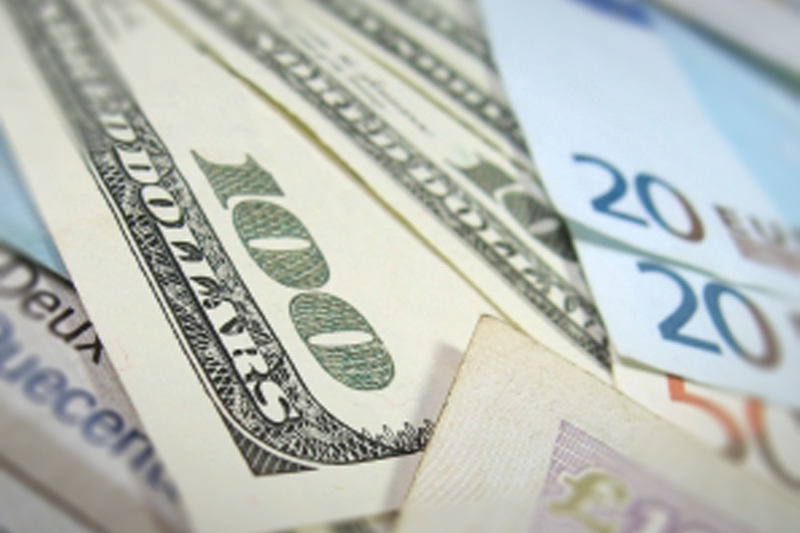Investing.com -- The euro ticked up slightly against the dollar on Thursday, as soft U.S. economic data outweighed mounting concerns of a default by Greece on its sovereign debt.
EUR/USD moved up modestly to 1.0766 in U.S. afternoon trading, one day after it reached 1.0686 to halt a steady depreciation against the greenback. The pair rose throughout the session from a 1.0699 level in European afternoon trading.
The pair likely received support at 1.05 its low from Mar. 11 and resistance at 1.10 the high from April 3. Since the start of March, EUR/USD has rarely hovered outside that range.
The U.S. Department of Labor said individuals filing for jobless benefits for the week ending April 11, increased by 12,000 to 294,000. Analysts had forecasted a decline of 2,000 for the week.
A disappointing reading of the Philadlephia Fed Business Outlook Survey paints a similarly dire picture. While the index ticked up to 7.5, from 5.0 in March, it obscures a 0.7 reading in new orders – the lowest growth in almost two years. This comes after the release of discouraging figures from Wednesday's release of the Empire State Manufacturing Survey. For the month, the survey ticked down 1.19 producing only the second negative reading in the last 23 months.
In terms of housing data, starts last month rose 2.0% to 926,000, vastly below expectations of a 15.9% increase. Building permits, meanwhile, declined by 5.7% to 1.039 million for the month. Analysts had expected the number of permits to drop by 2.0% to 1.08 million nationwide.
Elsewhere, the Treasury Department announced Thursday that Japan had eclipsed China as the largest foreign holder of U.S. government debt. At the end of February, Japan owned $1.2244 trillion in U.S. Treasuries, slightly above China's total of $1.2237 trillion in holdings.
The news pushed yields on 10-Year U.S. Treasuries above 1.91% in afternoon trading, before they fell back slightly to 1.895.
In Europe, yields on 10-Year German bundsfell to a record-low at 0.073%, one day after Mario Draghi reaffirmed the European Central Bank's long-term commitment to its €1.1 trillion quantitative easing program. The ECB announced earlier this week that it purchased €52.5 billion in government bonds in the first month of the program, including more than €11 billion in Germany.
The gains in the euro against its American counterpart were softened by increased concerns that Greece could default on its sovereign debt and leave the euro zone. With substantial Greek payments looming over the next three months, S&P lowered the nation's long and short-term credit ratings on its sovereign debt to CCC+ from B- ahead of a critical meeting of euro group finance ministers next Friday in Latvia.
On Wednesday, German finance minister Wolfgang Schaeuble told the Council of Foreign Relations that practically no one expects Greece to make a series of key repayments by the meeting next week in Riga or anytime soon. Greece also owes the International Monetary Fund more than €1.10 billion by early June for a loan under the IMF's first bailout program in 2010. IMF head Christine Lagarde said Thursday that a payment delay in the coming weeks is "not recommendable."
The Hellenic Ministry of Foreign Affairs denied a report from the Financial Times that officials in Athens approached the IMF about a potential delay.
Also on Thursday, USD/CAD hit 1.2232, its lowest level since January 21, underscoring the weakness of the U.S. dollar.
